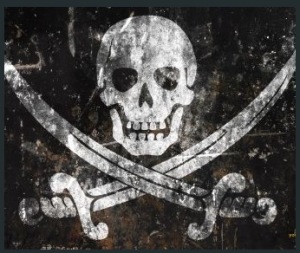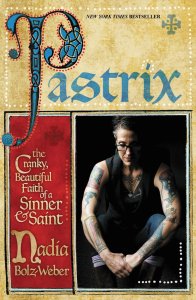If you would like your free copy of “Cheaper Than A Seminary Education,” a 45-page e-book on reading difficult passages of Scripture in context, sign up for my weekly newsletter here. If you decide it’s not for you, you may unsubscribe at any time.
Mark 13:24-37
“what I say to you I say to all: Keep awake.”
Escape From the Advent Zombies
“Keep Awake?” How dare a preacher stand up here in the busiest time of the year and intone, “Keep Awake,” when students work through caffeine-induced hallucinations to finish their final papers; when managers and labor work into the night to prepare their end-of-the year reports; and when parents fight the madness of the midnight shopping crowds to buy their child a PlayStation 4, braving even pepper-spray.
“Keep awake,” indeed.
That is more the world’s requirement than the way of Christ, don’t you think?
And keep awake for what? Haven’t we heard enough from the religious fringe of this eschatology, this end-of-the-world-as-we-know-it rhetoric? And haven’t they always been wrong?
And hey, Christmas is coming—angels, shepherds, baby in a manger with animals all around—why on earth does the church’s calendar of Bible readings give us all this stuff about the end of the world?
Then again, maybe this is exactly what we need to think about now, as scientists predict catastrophic climate change, as ISIS spreads their terror and influence from Syria to Iraq and Iran, and North Korea shoots off missiles between issuing threats to destroy the world with their nuclear capability.
The problem with passages such as the little apocalypse in Mark is that they have been used and abused as weapons of mass distraction. They have been used in our own day to frighten and threaten anyone who does not fall in line with a particular theology. They have even been used as contemporary political texts to threaten the righteous destruction of other nations.
So how do we pick through the rubble of mistaken predictions, misguided interpretation, and just plain rotten theology (am I a curmudgeon yet?) to assemble a responsible Christian proclamation of gospel, of good news, for Advent—and do so with the background music of Winter Wonderland?
Those of you who have been listening to me preach for lo these many years will know by now where I’m going—back to the original context of Mark’s writing of this passage.
It takes us back to about 70 A.D., forty years after Jesus’ crucifixion and resurrection, in the midst of, or in the immediate aftermath of the Roman destruction of Jerusalem, including the temple. [Much of Mark may have been written earlier than that, but chapter 13 reflects the context of the siege of Jerusalem.] For the first century Jewish and Christian community, this was their 9-11 moment, their Pearl Harbor, and their Cuban Missile Crisis, all wrapped up in one event. The world as they knew it had, in fact, come to an end. As the dust of destruction billowed up and darkened the sky over Jerusalem, the words of Jesus came back to Mark, how the sun would be darkened and the moon would not give its light. The poetic language of stars falling and the powers of heaven being shaken took on a new and literal context. Their question was not when it would happen—for them, it already had. Their questions were, “What now? What next?”
In that context, the words of Mark 13 are not threats, but words of hope.
They reach back to the words of the psalm,
God is our refuge and strength,
a very present help in trouble.
Therefore we will not fear, though the earth should change,
though the mountains shake in the heart of the sea;
though its waters roar and foam,
though the mountains tremble with its tumult.
In other words, God is still in charge.
No matter what happens, no matter what human failures we suffer through, God remains in charge of our ultimate destiny.
That is the apocalypse, which means, literally, an unveiling.
Mark’s apocalypse, his unveiling, or pulling back the curtain to show us what’s going on backstage, proclaims that even when it seems the world is falling apart, even when it seems life is falling apart, God is at work making a new heaven and a new earth, a place where God will wipe away every tear.
To those who feel that the burden of their family or their business, or the survival of the world is on their shoulders, the good news of apocalyptic hope is that God has not abandoned the world; God has not left us to our own devices.
There was a time, in the nineteenth century, when Protestant ministers preached these apocalyptic texts as descriptions of what human progress could accomplish. The industrial revolution and advances in science promised a new age, a day when illness could be eradicated and slavery and poverty abolished, if only we worked hard enough.
For those who harbored ultimate hope in human moral progress into the twentieth century, however, the mass destruction of WW I and WW II, along with the holocaust, and the ongoing scourge of sexual slavery destroyed any such illusion. Scientific progress, in the hands of human beings, did not and does not automatically lead us into the Kingdom of God.
Our hope, then, is not that we will create a new heaven and a new earth. It is not that you and I, through super-human effort, will bring ultimate reconciliation to all those around us in conflict, or bring about peace on earth.
Our hope, our vision, is the promise that God is leading us toward a new heaven and a new earth, and we get to be part of it. The paradox is that the work is God’s not ours, and we are relieved from the anxiety of our past failures; and yet, because the work is God’s, not ours, the work of reconciliation and generosity and peacemaking is not doomed to failure. It is meaningful.
Jesus said,
28“From the fig tree learn its lesson: as soon as its branch becomes tender and puts forth its leaves, you know that summer is near. 29So also, when you see these things taking place, you know that he is near, at the very gates.
Staying awake, staying alert, then, is not so much suffering the sleep deprivation of this busy time of year as it is keeping our eyes open for the signs of God’s grace breaking into the world.
A few years ago, there was an advertisement in a magazine for a beaded handbag costing thousands of dollars held by a model, eyes closed, looking beautiful but comatose. The banner read, “Comfort and joy.” [Thanks to Kathleen Norris in Christian Century for this.]
Staying awake, keeping alert, in the gospel’s word of hope, is the encouragement we need if we are to escape the fate of becoming Advent zombies. Instead, we can keep our eyes and ears open for God’s presence.
In 1993, John Prine released a different kind of Christmas album. Along with a few old standards like “I Saw Mommy Kissing Santa Clause,” he also explores the shadow side of Christmas with a song called “Christmas in Prison.” At the beginning of the second song on the record, he tells a live audience a story before he sings. He says, “I got a kind of unusual gift for Christmas a couple of years back, I got a divorce for Christmas, so I really didn’t know what to do; so I went out and bought myself an electric train because I never had one before. And me and this friend of mine, we nailed it to the dining room table. Just ‘cause we could.”
After that, though, he sings a song he wrote for his ex in which he pokes fun at his own bitterness and finally sings, “I wish you love/ I wish you happiness/ I guess I wish you/ all the best.”
Ignace Yan Paderewski was a Russian composer-pianist who died in 1941. One evening he was scheduled to perform at a great concert hall. In the audience of black tuxedos and long evening gowns was a mother with her fidgety nine-year old son. His mother brought him in hopes her boy would be encouraged to practice the piano if he could just hear the immortal Paderewski. So, against his own wishes, he had come.
As the mother turned to talk with her friends before the concert began, the boy slipped from her side, and without much notice from the audience, he sat down at the stool, staring wide-eyed at the black and white keys, and he put his fingers on the keyboard. He began to play “Chopsticks.” The roar of the crowd was hushed by hundreds of frowning faces turned in his direction. An angered audience began jeering at the boy, booing and hissing for him to be taken from the stage.
Backstage, Paderewski overheard the sounds out front and put together what was happening. He grabbed his coat and rushed toward the stage. Without one word of announcement, he stooped over the boy, reached around both sides and began to improvise a counter melody to harmonize and enhance the tune. As the two of them played together, Paderewski kept whispering in the boy’s ear: “Keep going. Don’t quit son. Keep on playing. Don’t quit. I’m right here…don’t quit!” [Thanks to the Rev. Dr. Russell Levenson on Day 1 for this story].
Though our efforts to live out the grace and love and generosity of a crucified and risen Lord may be as “Chopsticks” next to the soaring music of Handel’s “Messiah,” yet we have this word of encouragement constantly in our ear. God is the composer, whispering in our ear, “Don’t quit, I’m right here, keep on, keep on, keep on.”
Thanks be to God.
Would you like to receive sermons, lectionary reflections, book reviews, and links to my other articles by email each week? Sign up here, and you’ll also get “Cheaper Than A Seminary Education,” a free booklet on reading the Bible in context, and some other free stuff throughout the year. I won’t spam you, and I won’t share your email address with anybody ever. If you decide it’s not for you, you can easily unsubscribe.
 I laughed at the scene in Pirates of the Caribbean when the pirate captain takes a prisoner who had asked to parlay. “You can’t do that,” the prisoner argues. “It’s against the Pirate Code.” The pirate captain says, “the Code is more what you call guidelines than actual rules.”
I laughed at the scene in Pirates of the Caribbean when the pirate captain takes a prisoner who had asked to parlay. “You can’t do that,” the prisoner argues. “It’s against the Pirate Code.” The pirate captain says, “the Code is more what you call guidelines than actual rules.”



